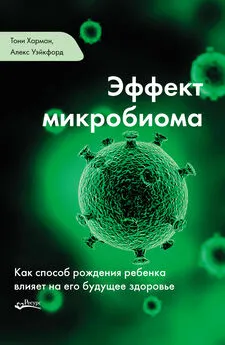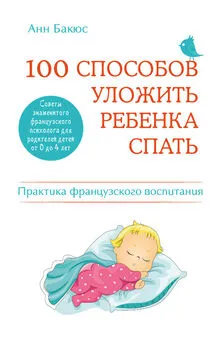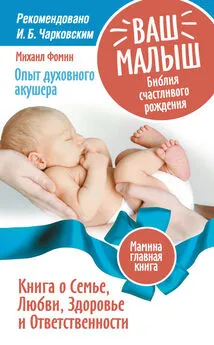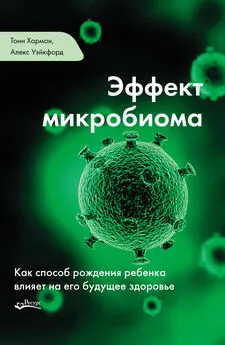Тони Харман - Эффект микробиома. Как способ рождения ребенка влияет на его будущее здоровье
- Название:Эффект микробиома. Как способ рождения ребенка влияет на его будущее здоровье
- Автор:
- Жанр:
- Издательство:Ресурс
- Год:2017
- Город:Москва
- ISBN:978-5-9909578-0-0
- Рейтинг:
- Избранное:Добавить в избранное
-
Отзывы:
-
Ваша оценка:
Тони Харман - Эффект микробиома. Как способ рождения ребенка влияет на его будущее здоровье краткое содержание
«Эффект микробиома» – это первая книга, в центре внимания которой – активно появляющиеся сегодня научные данные о том, как на формирование микробиома влияет способ появления человека на свет. Тони Харман и Алекс Уэйкфорд задают важные вопросы о потенциальных отдаленных последствиях таких ставшими обычными вмешательств в роды, как кесарево сечение или применение синтетического окситоцина, и делятся с читателями новой информацией о том, как искусственное вскармливание влияет на видовое разнообразие микробиома младенцев.
В книге содержится информация от экспертов из разных стран, в том числе акушерок, разработчиков глобальной политики в сфере здравоохранения, профессионалов в области педиатрии, иммунотоксикологии и генетики.
Книга предназначена для родителей, акушерок и других специалистов в области здравоохранения.
Эффект микробиома. Как способ рождения ребенка влияет на его будущее здоровье - читать онлайн бесплатно ознакомительный отрывок
Интервал:
Закладка:
Справочные материалы, предоставленные Жаклин Тейлор, сотрудницей Фонда Роберта Вуда Джонсона, доцентом факультета сестринского дела Йельского университета
Anderson, C.M., Ralph, J., Johnson, L., Scheett, A., Wright, M.L., Taylor, J.Y., Ohm, J.E. & Uthus, E. (2015), ‘First trimester vitamin D status and placental epigenomics in preeclampsia among northern plains primiparas’, Life Sciences, Vol. 129, pp.10–15; doi:10.1016/j.lfs.2014.07.012 [PMID: 25050465]
Capitulo, K., Klein, V., & Wright, M. (2013), ‘Should prophylactic antibiotics be routinely given to a mother before a cesarean birth?’ MCN American Journal of Maternal Child Nursing, Vol. 38(5), pp.266–267; doi: 10.1097/ NMC.0b013e31829b3d68 [PMID: 23958615]
Clark, A.E., Adamian, M., & Taylor, J.Y. (2013), ‘An overview of epigenetics in nursing’, Nursing Clinics of North America, Vol. 48, pp.649–659; PMCID: PMC3873714
Dahlen, H., Downe, S., Wright, M.L., Kennedy, H.P & Taylor, J.Y. (2016), ‘Childbirth and consequent atopic disease: Emerging evidence on epigenetic effects based on the hygiene and EPIIC hypotheses’, BioMed Research International, Vol. 16(1), p4
Dahlen, H.G., Kennedy, H.P., Anderson, C.M., Bell, A.F., Clark, A., Foureur, M., Ohm, J.E., Shearman, A.M., Taylor, J.Y., Wright, M.L., & Downe, S. (2013). ‘The EPIIC hypothesis: Intrapartum effects on the neonatal epigenome and consequent health outcomes’, Medical Hypotheses Vol. 80(5), pp.656–662; 170 doi:10.1016/j.mehy.2013.01.017 [PMID: 23414680]
Taylor, J.Y., Wright, M., Crusto, C., Sun, Y.V. (2016), ‘The intergenerational impact of genetic and psychological factors on blood pressure study (InterGEN): design and methods for complex DNA Analysis’, Biological Research for Nursing
Wright, M.L. & Starkweather, A.R. (2015), ‘Antenatal microbiome: potential contributor to fetal programming and establishment of the microbiome in offspring’, Nursing Research, Vol. 64(4), pp.306–319; doi: 10.1097/ NNR.0000000000000101 [PMID: 26035769]
Справочные материалы, предоставленные Анитой Козирски, профессором факультета педиатрии Университета Альберты
Azad, M.B., Konya, T., Persaud, R.R., Guttman, D.S., Chari, R.S., Field, C.J., Sears, M.R., Mandhane, P.J., Turvey, S.E., Subbarao, P., Becker, A.B., Scott, J.A., Kozyrskyj, A.L. and the CHILD Study investigators (2015), ‘Impact of maternal intrapartum antibiotics, method of birth and breastfeeding on gut microbiota during the first year of life: a prospective cohort study’, BJOG: An International Journal of Obstetrics and Gynaecology Sep 28 [Epub ahead of print] DOI: 10.1111/1471-0528.13601.
Azad, M.B., Konya, T., Guttman, D.S., Field, C.J., Sears, M.R., HayGlass, K.T., Mandhane, P.J., Turvey, S.E., Subbarao, P., Becker, A.B., Scott, J.A., Kozyrskyj A.L. and the CHILD Study investigators (2015), ‘Infant gut microbiota and food sensitization: associations in the first year of life’, Clinical and Experimental Allergy, Vol. 45, pp.632–643
Bridgman, S.L., Konya, T., Azad, M.B., Sears, M.R., Becker, A.B., Turvey, S.E., Mandhane, P.J., Subbarao, P. and the CHILD Study investigators, Scott, J.A., Field, C.J., Kozyrskyj, A.L. (2016), ‘Infant gut immunity: a preliminary study of IgA associations with breastfeeding’, Journal of Developmental Origins of Health and Disease, Vol. 7(1), pp.103–107
Koleva, P.T., Bridgman, S.L., Kozyrskyj, A.L. (April 2015), ‘The infant gut microbiome: evidence for obesity risk and dietary intervention’, Nutrients, Vol. 7(4), pp.2237–60
Kozyrskyj, A.L., Kalu, R., Koleva, P.T., Bridgman, S.L. (June 2015), ‘Fetal programming of overweight through the microbiome: boys are disproportionately affected’, Journal of Developmental Origins of Health and Disease, Vol. 29, pp.1–10
Mastromarino, P., Capobianco, D., Miccheli, A., Pratico`, G., Campagna, G., Laforgia, N., Capursi, T., Baldassarre, M.E. (2015), ‘Administration of a multistrain probiotic product (VSL#3) to women in the perinatal period differentially affects breast milk beneficial microbiota in relation to mode of delivery’, Pharmacological Research, pp.95–96, pp.63–70
Справочные материалы, предоставленные Стефаном Эльбе, профессором международных отношений, университет Сассекса, и директором Центра глобальной политики в сфере здравоохранения
Elbe, Stefan (2010), Security and global health: Toward the medicalization of insecurity (Polity Press, Australia)
Справочные материалы, предоставленные Ниной Моди, профессором неонатологии, Имперский колледж Лондона
Darmasseelane, K., Hyde, M.J., Santhakumaran,S., Gale, C., Modi, N. (2014), ‘Mode of delivery and offspring body mass index, overweight and obesity in adult life: a systematic review and meta-analysis’, PLoS One. Vol. 9(2):e87896 PMID: 24586295
Svensson, E., Hyde, M.J., Modi, N., Ehrenstein, V. (March 2013), ‘Caesarean section and body mass index among Danish adult men’, Obesity (Silver Spring), Vol. 21(3), pp.429–33 PMID: 23408746
Справочные материалы, предоставленные Аликой Белл, доцентом факультета здоровья детей, женщин и семьи, Иллинойский университет в Чикаго
Bell, A.F., Carter, C.S., Steer C.D., Golding J., Davis J.M., Steffen A.D., et al. (2015), ‘Interaction between oxytocin receptor DNA methylation and genotype is associated with risk of postpartum depression in women without depression in pregnancy’, Frontiers in Genetics, Vol. 6, p.243.
Bell, A.F., Carter C.S., Davis, J.M., Golding, J., Adejumo, O., Pyra, M. et al. (2015), ‘Childbirth and symptoms of postpartum depression and anxiety: A prospective birth cohort study’, Archives of Women’s Mental Health, Jul 23
Bell, A.F., Erickson, E.N., and Carter, C.S. (2014), ‘Beyond labor: The role of natural and synthetic oxytocin in the transition to motherhood’, Journal of Midwifery & Women’s Health, Vol. 59(1), pp.35–42
Дополнительные книги и мультимедиа
Следующие книги и статьи рекомендованы в качестве дополнительного чтения Родни Дитертом, профессором иммунотоксикологии Корнеллского университета и автором книги «Человеческий суперорганизм». Многие из указанных статей доступны для бесплатного скачивания в полной форме.
Blaser, M.J., Missing Microbes: How the overuse of antibiotics is fueling our modern plagues (Henry Holt and Co., an imprint of Macmillan Publishers, New York, 2014)
Dietert, R.R., The Human Superorganism: How the microbiome is revolutionizing the pursuit of a healthy life (Dutton, an imprint of Penguin Random House, New York, 2016)
Dietert, R.R. and Dietert J., Strategies for Protecting Your Child’s Immune System: Tools for parents and parents-to-be (World Scientific Publishing Company, Singapore, 2010)
Блейзер М. Плохие бактерии, хорошие бактерии. Эксмо, 2016
Дитерт Р. Человеческий суперорганизм. Иностранка/КоЛибри, 2017
Almgren, M., Schlinzig, T., Gomez-Cabrero, D., Gunnar, A., Sundin, M., Johansson, S., Norman, M., EkstroЁm, T.J. (2014), ‘Cesarean delivery and hematopoietic stem cell epigenetics in the newborn infant: implications for future health?’ American Journal of Obstetrics and Gynecology, Vol. 21(5), pp.502.e1-508.e80
Azad, M.B., Kozyrskyj, A.L. (2012), ‘Perinatal programming of asthma: the role of gut microbiota’, Clinical and Developmental Immunology; 932072
Azad, M.B., Konya, T., Maughan, H., Guttman, D.S., Field, C.J., Chari, R.S., Sears, M.R., Becker, A.B., Scott, J.A., Kozyrskyj, A.L. and CHILD Study investigators (2013), ‘Gut microbiota of healthy Canadian infants: profiles by mode of delivery and infant diet at 4 months’, Canadian Medical Association Journal, Vol. 185(5), pp.385–94
Blaser, M.J. (2006), ‘Who are we? Indigenous microbes and the ecology of human diseases’, The European Molecular Biology Organization Reports, Vol, 7(10), pp.956–60
Bloom, D.E., Cafiero, E.T., Janй-Llopis, E., Abrahams-Gessel, S., Bloom, L.R., Fathima, S., Feigl, A.B., Gaziano, T., Mowafi, M., Pandya, A., Prettner, K., Rosenberg, L., Seligman, B., Stein, A.Z. & Weinstein, C. (2011), ‘The global economic burden of noncommunicable diseases’, Geneva: World Economic Forum
Borre, Y.E., Moloney, R.D., Clarke, G., Dinan, T.G., Cryan, J.F. (2014), ‘The impact of microbiota on brain and behavior: mechanisms & therapeutic potential’, Advances in Experimental Medicine and Biology Vol. 817, pp.373–403
Decker, E., Hornef, M., Stockinger, S. (2011), ‘Cesarean delivery is associated with celiac disease but not inflammatory bowel disease in children’, Gut Microbes, Vol. 2(2), pp.91–8
Dietert, R.R. (2014), ‘Developmental immunotoxicity, perinatal programming, and noncommunicable diseases: focus on human studies’, Advances in Medicine, Vol. 2014, Article ID 867805
Dietert, R.R., (April 22, 2014), ‘Early immune education’, Eureka Science, Charles River Laboratories Scientific Blog Articles
Dietert, R.R., (2013), ‘Natural childbirth and breastfeeding as preventive measures of immune-microbiome dysbiosis and misregulated inflammation’, Journal of Ancient Diseases & Preventive Remedies, Vol. 1:103; doi: 10.4172/2329-8731.1000103
Dietert, R.R. and Dietert, J.M. (2012), ‘The completed self: an immunological view of the human-microbiome superorganism and risk of chronic diseases’, Entropy, Vol.14, pp.2036–65
Dietert, R.R., DeWitt, J.C., Germolec, D.R., Zelikoff, J.T. (2010), ‘Breaking patterns of environmentally influenced disease for health risk reduction: immune perspectives’, Environmental Health Perspectives, Vol.118(8), pp.1091–1099
Dominguez-Bello, M.G., Costello, E.K., Contreras, M., Magris, M., Hidalgo, G., Fierer, N., Knight, R. (2010), ‘Delivery mode shapes the acquisition and structure of the initial microbiota across multiple body habitats in newborns’, Proceedings of the National Academy of Sciences U.S.A, Vol. 107(26), pp.11971–5
Guinane, C.M., Cotter, P.D. (2013), ‘Role of the gut microbiota in health and chronic gastrointestinal disease: understanding a hidden metabolic organ’, Therapeutic Advances in Gastroenterology, Vol. 6(4), pp.295–308
Huang, L., Chen, Q., Zhao, Y., Wang, W., Fang, F., Bao, Y. (2014), ‘Is elective cesarean section associated with a higher risk of asthma? A meta-analysis’, Journal of Asthma, Vol. 2014 Aug 27, pp.1–10 Human Microbiome Project Consortium (2012), ‘Structure, function and diversity of the healthy human microbiome’, Nature, Vol. 486(7402), pp.207–14
Jakobsson, H.E., Abrahamsson, T.R., Jenmalm, M.C., Harris, K., Quince, C., Jernberg, C., BjoЁrkstén, B., Engstrand, L., Andersson, A.F. (2014), ‘Decreased gut microbiota diversity, delayed bacteroidetes colonisation and reduced Th1 responses in infants delivered by caesarean section’, Gut, Vol. 63(4), pp.559–66
Читать дальшеИнтервал:
Закладка:





![Аре Бреан - Музыка и мозг [Как музыка влияет на эмоции, здоровье и интеллект]](/books/1068692/are-brean-muzyka-i-mozg-kak-muzyka-vliyaet-na-emoc.webp)




